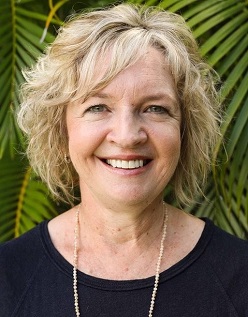Do you understand the power of thoughts and feelings?
Maybe if we took the example of a car, maybe a Mustang or even a Mazda will do. A car is usually designed to take in a mix of fuel and air to run the engine, there will be compression and combustion, and then the exhaust system will expel the waste.
Now as we look at this example in comparison with the design of our bodies, we take in both good and bad things, such as nutritious food as well as bacteria. Our bodies absorb the nutrients and expel the waste.
It works in much the same way with our minds. Our minds are constantly taking in information every day from all sorts of sources, and our mind needs to then expel the waste. If we don’t get rid of what’s not useful, we may get blocked up. Chemically, the brain becomes overloaded and causes us to feel heavy, creating a constipated mind!
Therefore, what we need to know is how to move unhelpful or even harmful thoughts out of our minds.
How the Mind affects the Body
If our thoughts, emotions and behaviour are toxic, over time this will have a negative impact on our health.
Dr Caroline Leaf, a cognitive Neuroscientist, states that research has found “75-98% of mental, physical and behavioural illness comes from one’s thought life. Only 2-25% of mental and physical illnesses come from the environment and genes”.
Neuroscience also tells us that we are not victims of our thoughts. The brain can adjust to trauma and rewire toxic thoughts and learning patterns. This is called Neuroplasticity.
Our past creates a predisposition, not a destiny. Therefore, we can be neuroplasticians! Our mind has the power to heal our brain. According to Dr Caroline Leaf:
When we intentionally and deliberately direct our mind, we stimulate neuroplasticity in the brain and improve our functioning between 35-75%.
Neuroscientists have found that one of the reasons thinking is so powerful, is because it actually changes the chemical balance in our brain. When we have a sustained negative thought pattern, it produces a chemical reaction that drains the serotonin levels in the brain – serotonin being the “happy hormone” which contributes to our wellbeing. When this drains out, we can become depressed.
A pattern of negative thinking also releases excess cortisol, the primary stress hormone, into our brains and bodies. When this occurs over a prolonged period, it can have detrimental effects on our health.
Through counselling we can explore some of the negative thoughts you may have been struggling with, and which may have created toxic emotions such as guilt, worry, anger, resentment or unforgiveness.
You CAN Change Your Mind!
It is exciting news to discover that our brains can be rewired or healed through right thinking, because it means we get to flip the script!
As for emotions, they can be unreliable in determining what is real and true. Emotions may feel real to us, but they are not real in themselves. Emotions are only our perception of what we believe to be real.
Our emotions are moved by our different circumstances; they change according to what we can see. However, often things are not as they seem. Epictetus, the philosopher and scientist said:
It’s not the events of life that change us emotionally, it’s the way we view those things in life.
You may not want to believe it, but emotions are what finally end up ruling our lives. We either react or we respond to life.
Dr Caroline Leaf says that “Toxic thoughts produce toxic emotions, which produce toxic attitudes, resulting in toxic behaviours”.
During counselling, we work together to find ways to rewire and heal the brain so you can reap the benefits of healthy thinking, and explore the ways to stop emotions controlling our lives. This is not a quick fix, it is a lifestyle. It takes time and effort to renew one’s mind, in turn changing your neural pathways, but it is possible to achieve a healthier mind, thoughts and emotions.
 Author: Fiona Muller, B Soc Sc, Major in Counselling; Member of PACFA and CCAA.
Author: Fiona Muller, B Soc Sc, Major in Counselling; Member of PACFA and CCAA.
Fiona is a registered counsellor working with both individuals and couples. Having previously worked with women’s groups, aged care, child care, pre-marriage counselling and community outreach programs, and married for nearly 30 years with two young adult children, Fiona’s experiences have given her a greater understanding and empathy of the many challenges and losses that life brings.
To make an appointment try Online Booking. Alternatively, you can call M1 Psychology Brisbane on (07) 3067 9129.